#DevOps best practices
Explore tagged Tumblr posts
Text
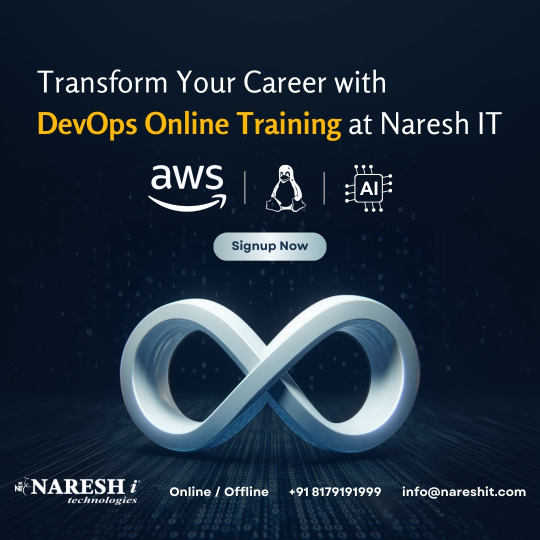
Boost your career with hands-on DevOps Online Training. Learn from industry experts and gain practical skills to become a DevOps pro. Enroll in our DevOps Online Training to get certified and accelerate your career!
#devops#DevOpsOnlineTraining#LearnDevOps#devops certification#DevOps Courses#DevOps Career#online training#devops engineer#devops tools#devops automation#DevOps Cloud#DevOps Best Practices#DevOps Hands-on Training#DevOps for Beginners
0 notes
Text
DevOps Development Services | Hire DevOps Developer Team
At Connect Infosoft, our DevOps development services are crafted to optimize your software delivery process. Our seasoned experts collaborate with you to evaluate your existing infrastructure, development methodologies, and business objectives. We then tailor our approach to implement the most effective DevOps strategies for your organization.
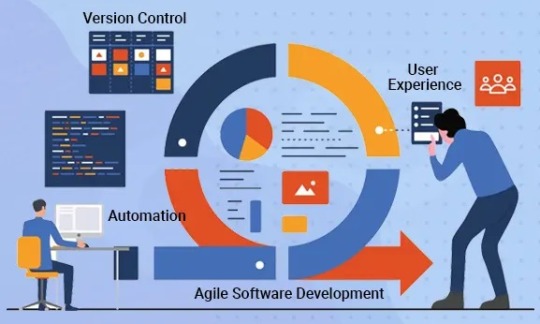
From establishing efficient continuous integration and delivery (CI/CD) pipelines to automating deployment processes, we ensure your workflows are streamlined for speed and reliability. We also provide ongoing support and training to facilitate the adoption and sustenance of DevOps practices across your teams.
Partnering with Connect Infosoft for your DevOps development requirements empowers you to expedite software delivery, enhance application quality, and foster collaboration between your development and operations teams. Reach out to us today to explore how our DevOps development services can elevate your business.
#DevOps development solutions#DevOps consulting services#DevOps implementation experts#Agile DevOps methodologies#Continuous integration and delivery#DevOps automation tools#DevOps best practices#DevOps security services#DevOps infrastructure management#DevOps support and maintenance
0 notes
Text
Your Trusted Partner Among DevOps Consulting Companies
At Goognu, we understand that each business has unique requirements and challenges. Our team of skilled DevOps consultants works closely with you to assess your current processes, identify bottlenecks, and design tailor-made solutions that align with your business objectives. We leverage our deep understanding of industry best practices and cutting-edge technologies to implement robust DevOps strategies that drive collaboration, automation, and efficiency throughout your software development lifecycle
#DevOps Consulting#DevOps Services#DevOps Solutions#DevOps Implementation#DevOps Strategy#DevOps Best Practices
0 notes
Text
Elevate your DevOps capabilities with AI. Follow these best practices to achieve scalability, reliability, and efficiency in your software delivery.
0 notes
Text
Devops and Cloud Engineering
Our services-led approach creates efficiencies and optimizes your IT environment, leading to better business outcomes. We create and execute strategies to unlock opportunities, providing effective design, deployment, and resourcing services.

#devops and cloud computing course#best cloud computing and devops course#practical devops and cloud engineering#top devops and cloud engineer skills
0 notes
Text
Optimizing Azure Container App Deployments: Best Practices for Pipelines & Security
🚀 Just shared a new blog on boosting Azure Container App deployments! Dive into best practices for Continuous Deployment, choosing the right agents, and securely managing variables. Perfect for making updates smoother and safer!
In the fifth part of our series, we explored how Continuous Deployment (CD) pipelines and revisions bring efficiency to Azure Container Apps. From quicker feature rollouts to minimal downtime, CD ensures that you’re not just deploying updates but doing it confidently. Now, let’s take it a step further by optimizing deployments using Azure Pipelines. In this part, we’ll dive into the nuts and…
#Agent Configuration#app deployment#Azure Container Apps#Azure Pipelines#CI/CD#Cloud Applications#Cloud Security#continuous deployment#Deployment Best Practices#DevOps#microsoft azure#Pipeline Automation#Secure Variables
0 notes
Text
Entwicklung einer skalierbaren IT-Strategie: Best Practices
In der heutigen, schnelllebigen Geschäftswelt ist eine flexible und skalierbare IT-Strategie für Unternehmen unerlässlich, um wettbewerbsfähig zu bleiben. Der Bedarf an einer solchen Strategie ist besonders relevant, da Unternehmen zunehmend auf digitale Transformationen und Cloud-Lösungen setzen. Eine gut durchdachte IT-Strategie ermöglicht es Unternehmen, effizient auf Marktveränderungen zu…
#Automatisierte Prozesse#Best Practice#Best Practices#Cloud-Services#Containerisierung#DevOps#Digitale Transformation#Führung#IT-Infrastruktur#IT-Ressourcen#IT-Strategie#IT-Strategien#Kubernetes#Microservices#Virtualisierung
0 notes
Text
Best Practices for Infrastructure as Code (IaC)
Hey there! If you're diving into the world of Infrastructure as Code (IaC), you're in for an exciting journey. IaC is all about managing and provisioning your infrastructure through code, making your deployments consistent, repeatable, and scalable. But like anything in tech, there are best practices to follow to make sure you're getting the most out of it. So, let's explore some key practices for effective IaC implementation that can make your life a whole lot easier!
Version Control for IaC
Why Version Control Matters
Alright, let's start with the basics. Why is version control so important for IaC? Imagine you're working on a complex infrastructure setup, and suddenly something breaks. Without version control, you're left scratching your head, wondering what went wrong. By using a version control system like Git, you can keep track of every change made to your IaC scripts. It's like having a rewind button for your infrastructure!
Tracking Changes and Collaboration
Version control isn't just about tracking changes; it's also a fantastic collaboration tool. When you're working with a team, everyone can work on different parts of the infrastructure without stepping on each other's toes. You can easily review changes, roll back to previous versions if something goes awry, and even experiment with new features in separate branches. It's all about teamwork and making sure everyone is on the same page.
Modular Design and Reusability
Creating Reusable Modules
Next up, let's talk about modular design and reusability. One of the best ways to streamline your IaC process is by creating reusable modules. Think of these modules as building blocks that you can mix and match across different projects. It saves time and ensures consistency. For example, if you've got a standard setup for deploying a web server, you can reuse that module whenever you need a web server, tweaking it only as necessary.
Encapsulation and Abstraction
When designing these modules, it's essential to encapsulate your infrastructure logic. This means hiding the complexity behind a simple interface. By doing so, you make it easier for others (and future you) to use these modules without needing to understand every detail. It's like driving a car; you don't need to know how the engine works to get from point A to point B.
Automated Testing and Validation
Testing IaC
Now, let's get into something super crucial: testing. Just like with any code, you want to catch errors before they make it to production. Automated testing for IaC scripts is your safety net. It helps you identify issues early on, saving you from potentially disastrous deployments.
Tools and Techniques
There are some fantastic tools out there for testing IaC. Terratest, for instance, is great for testing Terraform configurations, while Molecule is your go-to for testing Ansible playbooks. These tools allow you to run tests in isolated environments, ensuring that your scripts do what they're supposed to do. It's like having a practice run before the big game.
Security and Compliance
Ensuring Secure IaC
So, we've all heard horror stories about security breaches, right? In the world of IaC, security is just as critical as anywhere else in tech. When you're defining your infrastructure through code, you're also setting up security policies, permissions, and configurations. It's essential to scan your IaC scripts for vulnerabilities regularly. Tools like Checkov or TFLint can help you catch security issues before they go live. Trust me, a little prevention goes a long way!
Compliance Audits
Now, onto compliance. Whether you're working in healthcare, finance, or any other regulated industry, adhering to compliance standards is non-negotiable. IaC can make compliance audits a breeze. By codifying your infrastructure, you can create repeatable and auditable processes. This means you can quickly show auditors that your systems are up to snuff with industry regulations. It's like having a well-organized filing cabinet, but for your infrastructure!
Ensuring Best Practices with Professional Support
So, you've got your IaC scripts, version control, modular designs, and automated tests all set up. But what if you need a bit more help? This is where a DevOps services provider company comes in. These experts offer comprehensive support to implement best practices for IaC. They can guide you through the maze of tools and techniques, ensuring that your infrastructure is secure, compliant, and efficient. It's like having a personal trainer for your tech stack!
Final Thoughts
The Path to Effective IaC Implementation
Alright, let's wrap this up. Implementing Infrastructure as Code can be a game-changer for your organization. By following these best practices—using version control, designing reusable modules, testing your scripts, and ensuring security and compliance—you set yourself up for success. And remember, having professional guidance can make the journey smoother and more efficient. So, go ahead and dive into IaC with confidence, knowing that you've got a solid foundation to build on.
And there you have it, folks! That's the scoop on best practices for IaC. If you've got any questions or want to share your experiences, feel free to drop a comment. Happy coding!
Frequently Asked Questions (FAQs)
1. What is Infrastructure as Code (IaC) and why is it important?
Infrastructure as Code (IaC) is a method to manage and provision computer data centers through machine-readable scripts, rather than physical hardware configuration or interactive configuration tools. It's important because it automates and standardizes the deployment process, reducing manual errors, and speeding up the setup and scaling of infrastructure.
2. What are some best practices for implementing IaC?
Implementing IaC effectively involves several best practices, including using version control systems like Git, modularizing your infrastructure code for better reusability, and automating testing to catch errors early. It's also crucial to keep your IaC code secure by scanning for vulnerabilities and ensuring compliance with industry regulations.
3. How does version control help with IaC?
Version control systems help manage changes to IaC scripts, providing a history of changes, facilitating collaboration, and enabling rollback if something goes wrong. Tools like Git track every modification, making it easier to audit changes and maintain consistency across different environments.
4. What are the common tools used for Infrastructure as Code?
Common IaC tools include Terraform, Ansible, and Pulumi. Terraform is known for its broad compatibility with cloud providers and its declarative syntax. Ansible is popular for configuration management and orchestration, while Pulumi allows for infrastructure provisioning using standard programming languages like Python and TypeScript.
5. Why is automated testing important in IaC?
Automated testing in IaC ensures that infrastructure changes do not introduce errors or vulnerabilities. By running tests on your IaC scripts before deployment, you can catch issues early and maintain high reliability. Tools like Terratest and Molecule can automate these tests, providing continuous integration and delivery capabilities.
1 note
·
View note
Text
12-Factor App Methodology: Essential Web Development Best Practices for Modern Apps
Explore the 12-Factor App Methodology and uncover web development best practices that enhance scalability and maintainability. This comprehensive guide delves into 12-Factor App Principles, offering insights into effective software development methodologies and their impact on cloud-native applications.
#12-Factor App Methodology#Web Development Best Practices#12-Factor App Principles#Software Development Methodologies#Cloud-Native Applications#DevOps Practices
0 notes
Text
Exploring the Latest Trends in Software Development
Introduction The software is something like an industry whose development is ever-evolving with new technologies and changing market needs as the drivers. To this end, developers must keep abreast with current trends in their fields of operation to remain competitive and relevant. Read to continue .....
#analysis#science updates#tech news#technology#trends#adobe cloud#business tech#nvidia drive#science#tech trends#Software Solutions#Tags5G technology impact on software#Agile methodologies in software#AI in software development#AR and VR in development#blockchain technology in software#cloud-native development benefits#cybersecurity trends 2024#DevOps and CI/CD tools#emerging technologies in software development#future of software development#IoT and edge computing applications#latest software development trends#low-code development platforms#machine learning for developers#no-code development tools#popular programming languages#quantum computing in software#software development best practices#software development tools
0 notes
Text
DevOps Best Practices in 2024
DevOps Best Practices in 2024 @vexpert #devops #devops2024 #devopstools #agiledevelopment #iac #terraform #continuousintegration #continuousdelivery #devsecops #ai #generativeai #virtualization #homeserver #homelab #vhtforums #learneveryday
Devops is a hug part of modern development processes in production environments. DevOps operations teams are part of the broader interaction between development and operations teams to create modern software apps that follow modern workflows. Let’s take a look at DevOps best practices in 2024 for the DevOps team and see why these are important, especially now as part of the DevOps trends we see…

View On WordPress
#best practices#continuous delivery#continuous integration#devops#home lab#home server#tools#virtualization
0 notes
Text
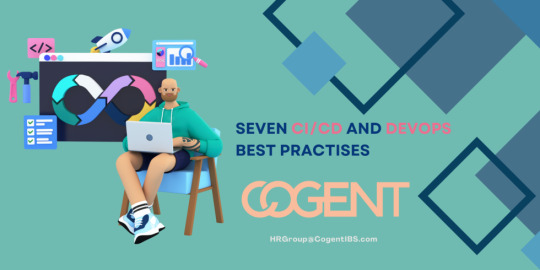
Seven Best Practices for DevOps and CI/CD
Modern software development is built on the DevOps consulting services provided by Cogent. Our DevOps engineers use contemporary tools that enhance our frameworks and integrate DevOps processes within your company. To get your product onto the market as soon as possible, we automate your cloud infrastructure and processes while guaranteeing continuous integration and delivery. Our market-validated DevOps best practices and industry-leading DevOps services enable us to deliver a feature-rich product in a shorter amount of time and money.
0 notes
Text
Explore smart solutions with SculptSoft's guide on DevOps best practices for real estate software development. Uncover the transformative power of DevOps methodologies in streamlining development processes, enhancing collaboration, and ensuring the efficiency of real estate software projects. Whether you're a real estate professional or a tech enthusiast, this resource offers valuable insights into optimizing your software development lifecycle.
#Best Practices for Real Estate#real estate industry#Real Estate Software Development#DevOps in Real Estate
0 notes
Text
#CDP#certified devops practitioner#CDP certification#devops practitioner best practices#devops practitioner certification#devops practitioner
0 notes
Text

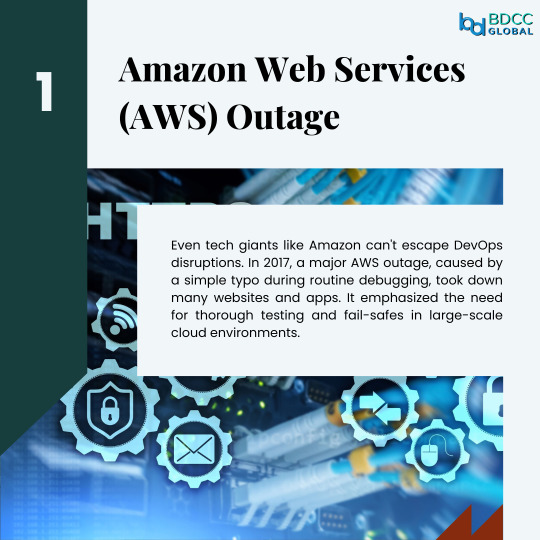
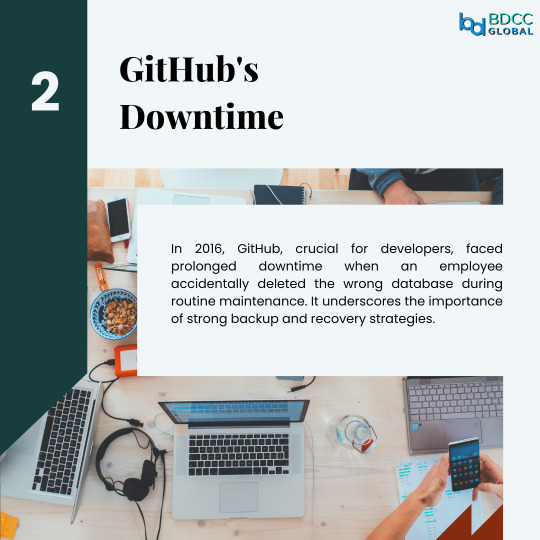

DevOps Disasters: Learn from the Costly Mistakes of Industry Leaders. 🛠️🔥
Avoid pitfalls, embrace best practices, and secure your success in the world of DevOps.
1 note
·
View note
Text
Java is an established programming language and an ecosystem that has dominated the software business for many years. According to TIOBE index rankings, Java was the #1 popular programming language in 2020 and the fourth best currently for bespoke software development.
The key factor for its intensive popularity is its security, which is why it is extensively used in a broad range of disciplines such as Big data processing, AI application development, Android app development, Core Java software development, and many more. It provides a large set of tools and libraries, as well as cross-platform interoperability, allowing customers to build applications of their choice.
#java development#future of java#java trends#java developer for hire#Java programming language for cloud-native development#Java frameworks for microservices architecture#Java ecosystem tools for DevOps automation#Java web development trends in 2023#Agile Java development with DevOps best practices#software development company
0 notes